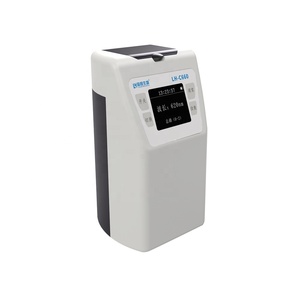Introduction to Laboratory Test Prices
In today's healthcare landscape, understanding laboratory test prices is crucial for both individuals and businesses. Laboratory tests are vital for diagnosing illnesses, monitoring health conditions, and validating treatment effectiveness. However, the cost of these tests can vary significantly based on numerous factors, making it essential to have a comprehensive understanding of what influences these prices. This guide will delve into the various elements that affect laboratory test prices, ensuring you are better equipped to navigate your healthcare expenses.
Types of Laboratory Tests and Their Prices
Laboratory tests can be classified into different categories, each with its own price range:
- Blood Tests: These are among the most common and can range from basic screenings to comprehensive panels. Prices typically range from $10 to $3,000 based on complexity.
- Urine Tests: Used to diagnose various conditions, urine tests generally cost between $10 and $200, depending on the specifics.
- Genetic Testing: Specialized tests that analyze genetic makeup often come at a premium, frequently ranging from $100 to $5,000.
- Cultures and Sensitivities: Testing for infections can vary widely based on the type of organism being cultured; prices typically vary from $20 to $500.
Factors Influencing Laboratory Test Prices
Understanding the factors that contribute to laboratory test prices can help you make informed decisions regarding healthcare costs:
- Test Complexity: More complex tests that require sophisticated technology or extensive analysis usually command higher prices.
- Location: Geographic variation plays a significant role; urban areas often experience higher prices due to increased demand and operational costs.
- Insurance Coverage: The extent of your medical insurance plan can drastically affect out-of-pocket expenses for tests.
- Laboratory Accreditation: Tests performed in accredited facilities may be priced higher due to adherence to quality standards.
Maximizing Value from Your Laboratory Test Prices
To ensure you're getting the best value for your money when it comes to laboratory test prices, consider the following suggestions:
- Shop Around: Compare prices from different laboratories or healthcare providers to find the best rates.
- Consult with Your Physician: Discuss which tests are absolutely necessary and avoid unnecessary testing.
- Utilize Insurance Benefits: Make sure that's all your insurance details are up-to-date and know your benefits when scheduling tests.
- Inquiry about Pricing Transparency: Don't hesitate to request clear pricing guidelines and potential additional fees associated with the tests.
Conclusion
In summary, understanding laboratory test prices prepares you to make informed health decisions and manage expenses effectively. By familiarizing yourself with the types of tests available, the factors influencing pricing, and strategies to maximize value, you can navigate the complexities of laboratory costs with confidence. Always remember to stay proactive in discussing costs with your healthcare provider to ensure you receive high-quality care at fair prices.












































